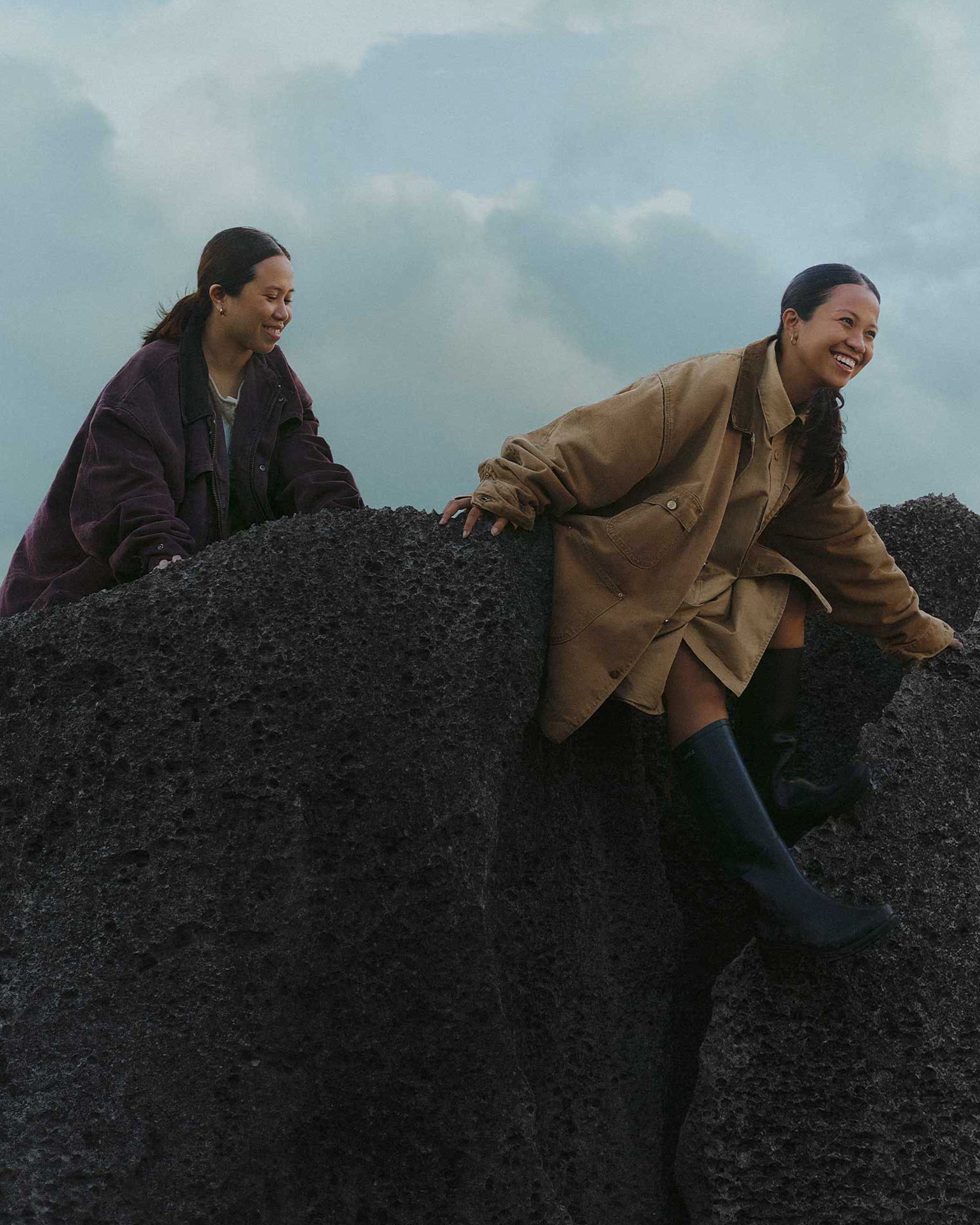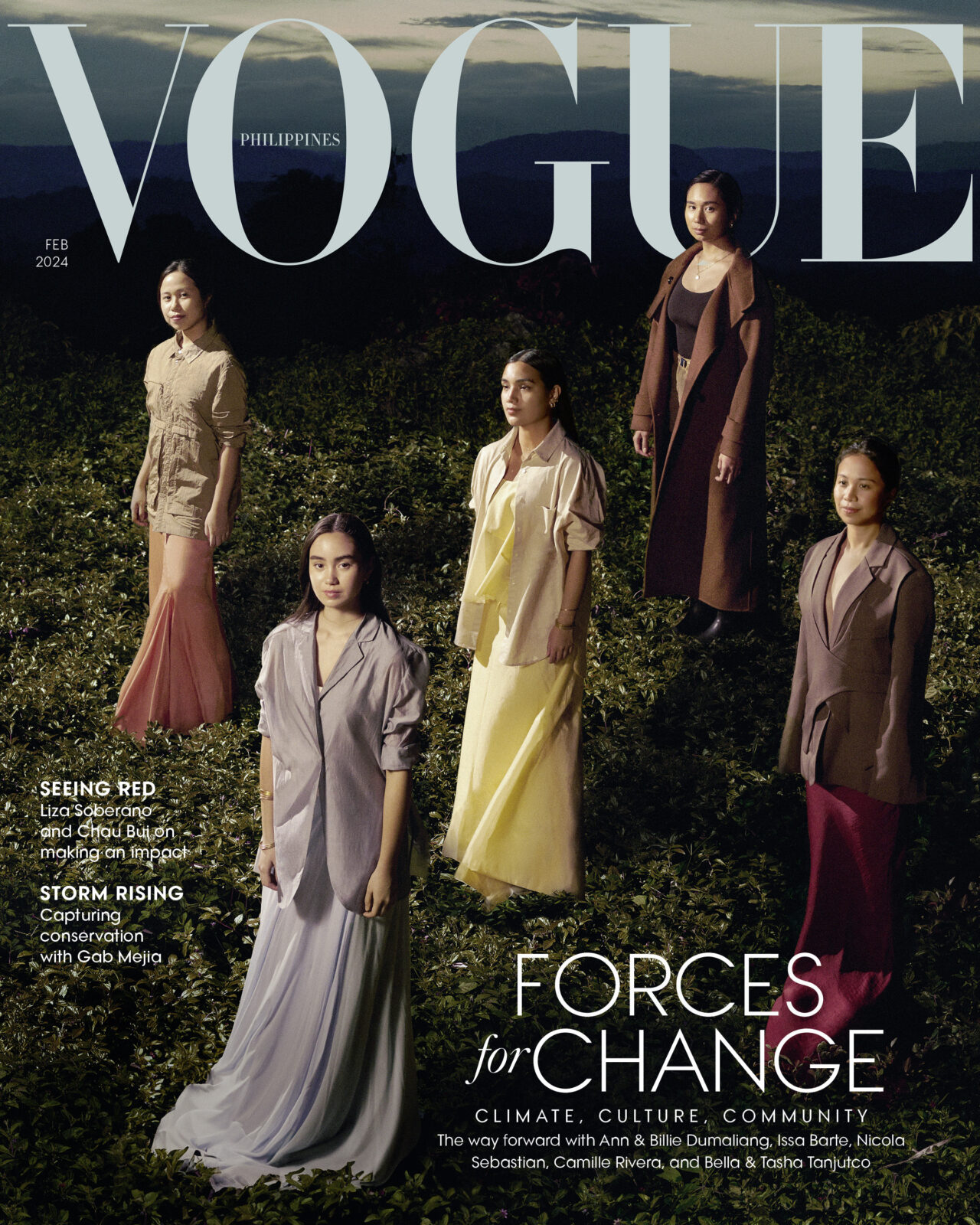Billie wears a vintage CARHARTT jacket from IT’S VINTAGE, CARL JAN CRUZ top and shorts. Ann wears a vintage CARHARTT jacket and vintage button-down from IT’S VINTAGE, AIGLE rain boots. Photographed by Artu Nepomuceno for the February 2024 Issue of Vogue Philippines
From a barren land to a forest teeming with life, Ann and Billie Dumaliang have witnessed Masungi Georeserve’s growth through the years. Now, they’ve dedicated their lives to defending it.
When you step inside Masungi Georeserve, it is hard to imagine that it was a barren land 20 years ago. Home to over 400 species, the conservation area is located in Baras, Rizal, and invites guests to touch, see, and experience nature. The fresh breeze, lush forest, and breathtaking views make you wonder, “Why aren’t there more places like this?”
Conservation work is an uncommon path for most people. But for Masungi Georeserve trustees Ann and Billie Dumaliang, they were already set on this path at an early age. Since then, they have given their life to protecting and nurturing Masungi.
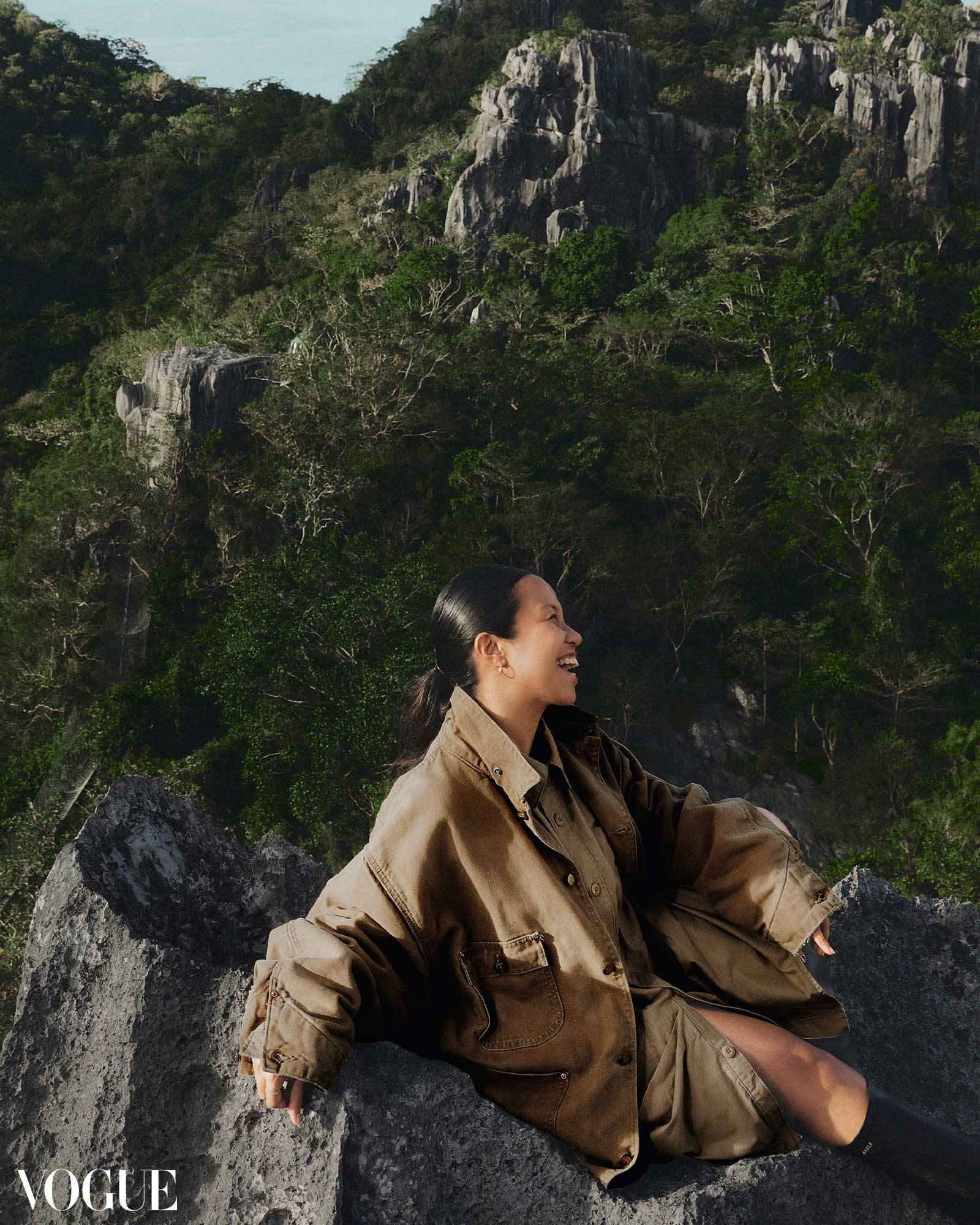
Bringing the story of Masungi to a global platform
Ann and Billie’s childhood differs from most people’s. Unlike most children, Billie and Ann were handed books and explored nature instead of playing with toys or going to the mall. “Our father is an engineer. He was already doing a lot of projects [at the time], going to the rural areas and mountains. On weekends, he takes us with us,” Billie shares. “We grew up in that environment that appreciates knowledge and the natural world.”
“Our dad doesn’t look at projects as a money-making venture; he looks at the value they have to offer everyone in the long term. When he deals with the environment, he considers the landscape and ensures that whatever he builds works with it,” Ann shares. “That practice of his increased our confidence that sustainable development isn’t a myth. Ensuring that development and engineering work supplements and supports conservation initiatives is doable. And if you have enough radical leadership, you can fight for that.”
That confidence carries through today. Recently, Ann flew to Davos, Switzerland, to bring the story of Masungi to the World Economic Forum (WEF) Annual Meeting 2024. Moderating the panel discussion on Intergenerational Wisdom, Dumaliang discussed the value of natural regeneration, indigenous practices, and community with wildlife conservationist Jane Goodall, Re-Earth initiative founder Kiya Bastida, and youth advocate Marie-Claire Graf.
“The Earth Wisdom Keepers panel brought to consciousness the existence of an ecological amnesia among humanity and the value of ancestral intelligence. It highlighted the importance of listening and involving in decision-making indigenous groups, front liners in the biodiversity and climate crises, scientists, young people, and elders alike,” Ann shares. “It’s definitely been reinvigorating to be among visionaries who have courage; tenacity, ambition, and big hearts for nature.”
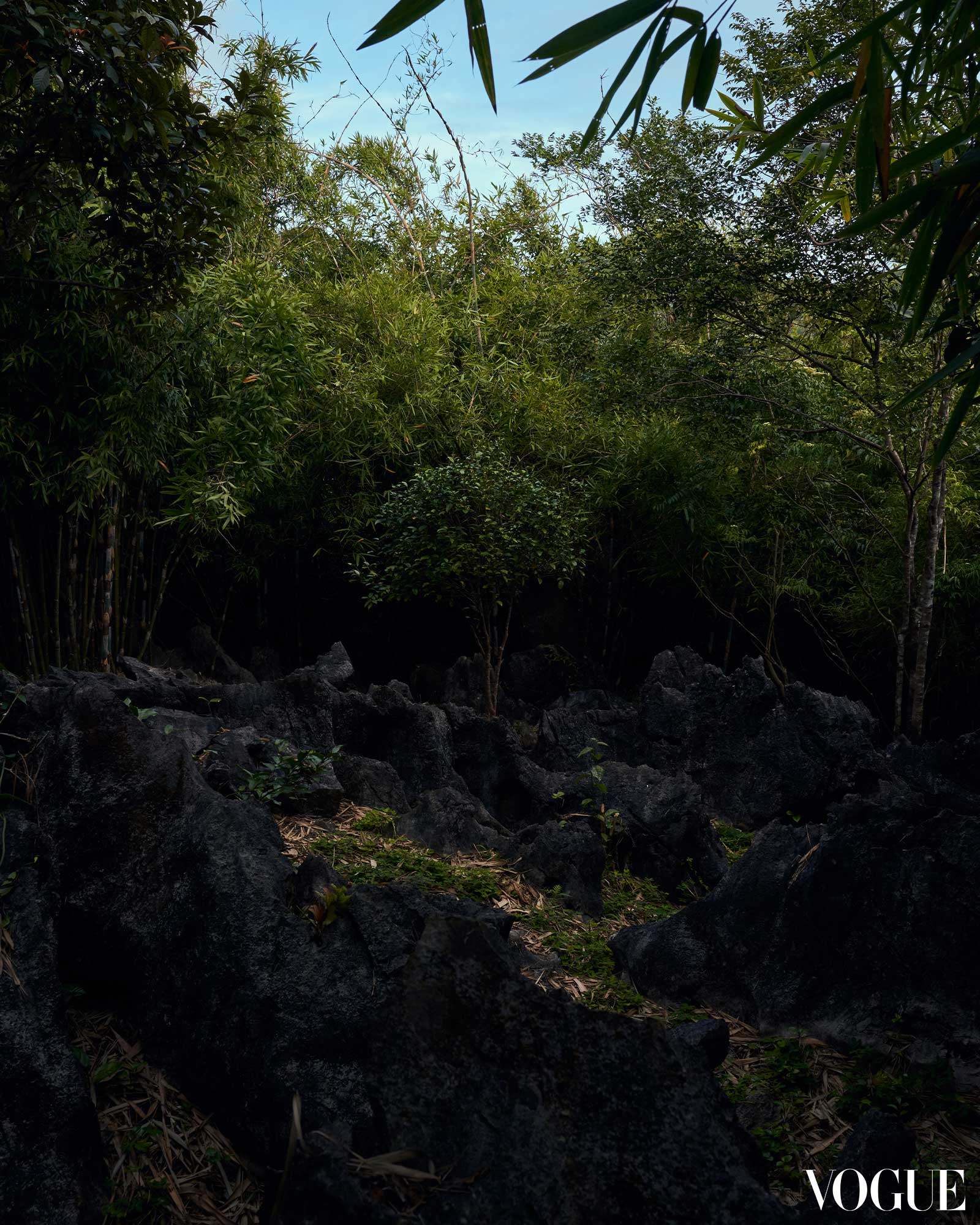
She adds, “It’s inspiring to see how that forum has become an area for dialogue and building trust across all sectors, from politics to business to civil society leaders. All of a sudden, you have all these wonderful people together for five days in the same area, trying to find solutions to the world’s problems. It makes you feel that everything we’re facing is survivable. That it’s possible and the force for good will be stronger than the problems.”
Ann emphasizes the importance of dialoguing across all sectors. “People should be dialoguing; people should be making space to listen to each other, to reconcile differences, and to take action together,” she says. According to Ann, the lack of these dialogues between governing bodies and environmental defenders makes conservation work more challenging.
Ann shares from her personal experience: “They say it’s because the problem is complex. Nothing is complex about taking, holding offenders accountable, and replicating models that work. It’s as simple as that. If we want to be able to take action forward, do not create distrust, and government should make a solid effort at showing that they listen and that they safeguard the institutional integrity of departments.”
Ann is no stranger to representing the Philippines to tackle climate and environmental issues. This can be daunting, but Ann focuses on the goal instead of feeling overwhelmed or pressured.
“Being clear on your objectives and focused on that should help you avoid getting overwhelmed,” she shares. “In a forum like this, everyone has something to offer, but the preparation for it counts. What are the objectives to be met? Who are the best people to approach? How do you get additional support during the event itself, considering you’re the only representative so that you can maximize everyone’s presence there?”
For Billie, taking care of your health and well-being is equally important. “As a woman whose work requires a lot, physically and mentally, it’s important to take care of yourself and your health to do your work effectively. A lot of people working in the conservation space or even in the development sector, we tend to put all of our hearts, souls, minds, and bodies into the work,” Billie says.
This sentiment stems from her own experience of being diagnosed with premenstrual dysphoric disorder (PMDD). “After I was diagnosed with PMDD, I became more conscious about my health, lifestyle, and the treatments I should be getting to work effectively. Now I feel much better; I feel more confident to brace the day and do my best with whatever I do,” she says.
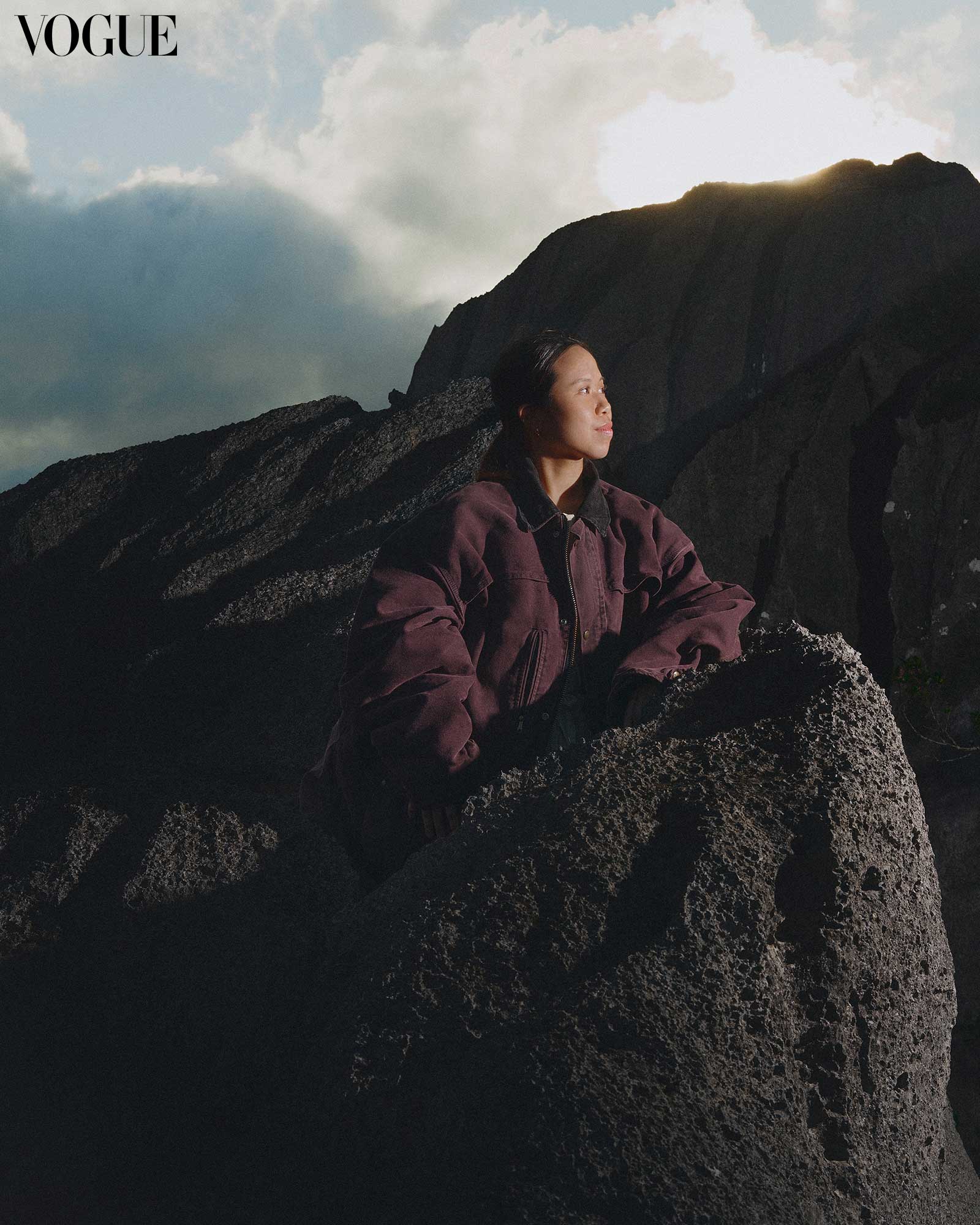
Carrying wisdom forward
For Ann and Billie, there is much to hope for. “I hope there will be genuine collaboration and support for our leaders for Masungi. I think we should be all working together towards protecting Masungi and be able to put this pioneering endeavor before short-sighted or personal ones,” says Billie.
Reflecting on the work done by others, Ann highlights the importance of carrying their wisdom forward. “I’ve learned so much from them on the principles of coexisting with nature, what it means to be an indigenous person who lives very closely with the environment,” she shares. “They asked me not to forget and to ensure we carry that wisdom forward. I take that to heart because we see that I believe that the wisdom they hold, which has existed for more than thousands of years, you can’t just forget that. It unlocks a lot of principles and knowledge that should direct us on how we should pursue living on Earth.”
“I always say that nature can’t speak for itself, so to be given a chance to witness nature, to be able to hear what it can offer, to hear its pains, that is a blessing, and it would be a huge disgrace not to pursue it,” Ann continues. “If you find the bravery and the strength to take it a step further, you might be doing wonders for the space already. Be brave when looking deeper into problems and taking the next steps needed. It’s good when you see a problem; that means you’re able to come closer to the root of the issues, so don’t be afraid.”
- Creativity As Catalyst: TAYO Philippines Founders Tasha and Bella Tanjutco On Using Creative Solutions For Climate Work
- Issa Barte On Amplifying Indigenous Voices And The Role Of Culture In Climate Action
- Camille Rivera On Bringing Life Back To Communities Through Mangrove Conservation
- Riding Waves, Growing Stories: Nicola Sebastian’s Path To Climate Justice In The Philippines
